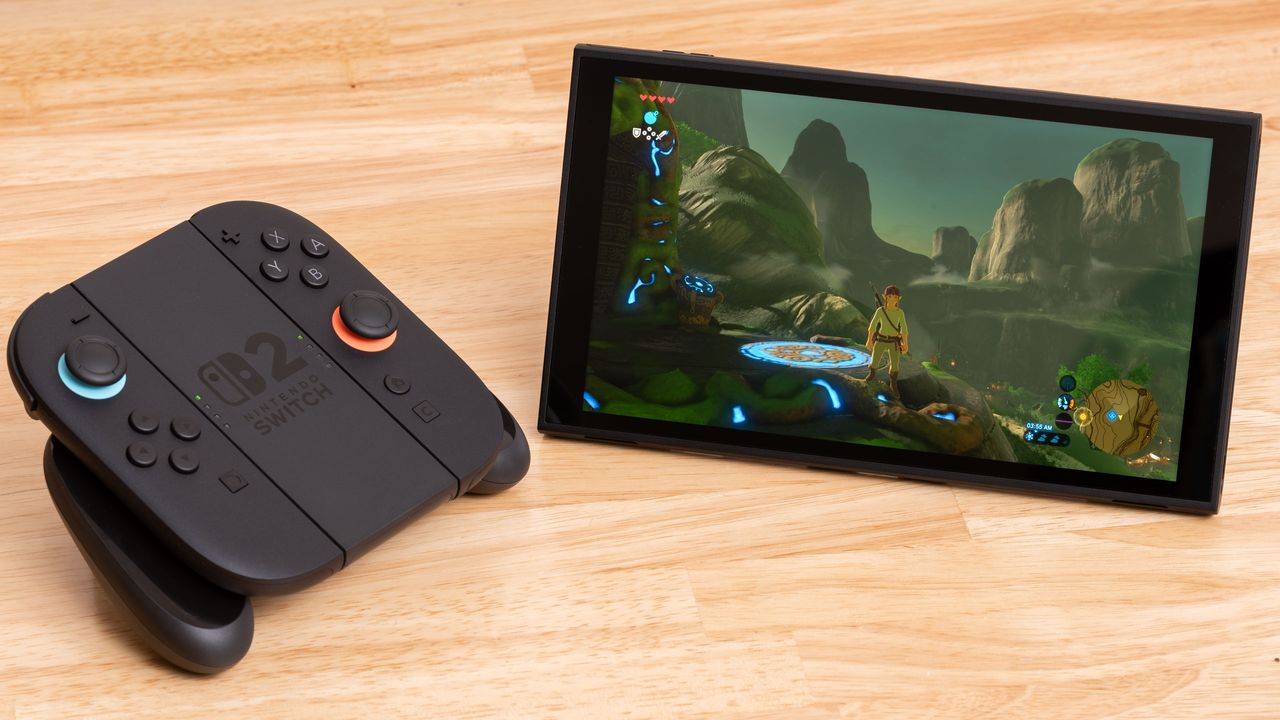
A Switch 2 Owner Faces a Sudden Ban After Purchasing a Used Game
A recent incident involving a Nintendo Switch 2 owner has sparked widespread concern among gamers who rely on the used game market. Quinn Nelson, known for their YouTube channel Snazzy Labs, shared a public service announcement (PSA) warning others about the risks of buying second-hand Nintendo games. The issue arose after Nelson purchased what they believed to be a legitimate copy of Bayo 3 on eBay. However, the console was soon “restricted by Nintendo,” effectively cutting off access to online services and raising questions about the game’s origins.
Nelson posted a detailed account of the situation on social media, describing how their one-month-old $450 Switch 2 had been banned. They speculated that the game cartridge might have been “dumped” or “ripped” by a previous owner, which triggered Nintendo’s anti-piracy systems. The message displayed on the console read: “The use of online services on this console is currently restricted by Nintendo.” This restriction prevents the user from accessing online features, even though physical cartridges and some digital games may still function without updates.
This incident highlights a growing issue with the used game market. While many gamers turn to second-hand purchases to save money, there are inherent risks involved. Nintendo has taken steps to combat piracy by implementing systems that can detect unauthorized copies. If a game cartridge is flagged as pirated or cloned, it could result in a ban on the associated console, regardless of whether the buyer knew about the game’s history.
However, not all users face permanent consequences. Some have successfully appealed to Nintendo by providing evidence that they were unaware of the game’s questionable origin. For example, a similar case last week involved a user who purchased a used game through Facebook Marketplace. After submitting proof of purchase and demonstrating good faith, the user was able to regain access to online services.
Despite this, the situation remains frustrating for innocent buyers. Nelson, who has previously spoken about using a MIG Flash cart to run game dumps, clarified that they were not intentionally pirating content. In a past tweet, they mentioned wanting to use the flash cart to carry multiple physical games on a single device without risking a ban on an unmodified console. They also emphasized that they understood the difference between playing pirated copies and their own games.
Not everyone on social media supported Nelson’s claims. Some pointed out that the use of tools like MIG Flash could potentially lead to bans if the games being played are not properly authorized. Others questioned whether Nelson’s actions contributed to the restriction. However, many others expressed sympathy, acknowledging that it’s easy to unknowingly acquire a problematic cartridge.
For now, Nelson is hoping that Nintendo will reconsider the ban. They have shared screenshots of the restriction and are likely preparing a case to appeal the decision. Their experience serves as a reminder that while the used game market offers cost savings, it also comes with risks that players must carefully consider.
If you’re thinking about purchasing a used Nintendo Switch game, it’s essential to be cautious. Always verify the source of the game and look for signs that it may have been tampered with or cloned. If something seems off, it’s better to err on the side of caution. And if you find yourself in a similar situation, don’t hesitate to reach out to Nintendo directly with any evidence you have.
Ultimately, the incident underscores the importance of understanding how Nintendo’s anti-piracy measures work and what steps you can take to protect your console and gaming experience.
Posting Komentar untuk "Nintendo Switch 2 Ban Crisis Escalates as Creator Warns Over eBay Bayonetta 3 Purchase"